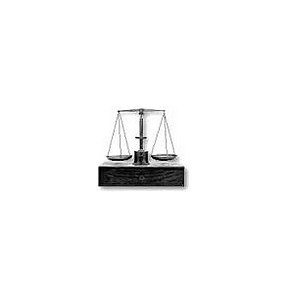Best Child Custody Lawyers in Tallinn
Share your needs with us, get contacted by law firms.
Free. Takes 2 min.
Free Guide to Hiring a Family Lawyer
List of the best lawyers in Tallinn, Estonia
About Child Custody Law in Tallinn, Estonia
In Tallinn, Estonia, child custody law is oriented towards the best interests of the child. This common good principle applies to decisions on child custody, visitation rights, and maintenance support. Parents can mutually agree on joint custody or one parent may have exclusive custody, depending on the circumstances. Family matters, including child custody, are generally regulated by the Estonian Family Law Act.
Why You May Need a Lawyer
Navigating the complexities of child custody matters may require professional help. You might need a lawyer to ensure your rights and interests are adequately represented in cases like devising a parenting plan, revising an existing custody agreement, or disputing the other parent's custody or visitation rights. Legal professionals can provide invaluable guidance in understanding local jurisdictional rules and regulations.
Local Laws Overview
Estonian Family Law suggests that commonly child custody is joint, both parents have equal rights and responsibilities, unless otherwise decided by the court. The child’s place of residence is determined by mutual agreement between parents. If a consensus is not reached, it is established by the court. Child support payments are another important aspect and it is typically payable by a non-custodial parent to a parent having primary custody, subject to the minimum stipulated by the law.
Frequently Asked Questions
Who decides child custody issues in Estonia?
In Estonia, child custody matters are primarily decided by the parents themselves. However, if parents cannot reach an agreement, the matter is determined by a judge who takes the child's best interests into account.
What factors influence child custody decisions?
Various factors come into play, including the relationship of the child with each parent, each parent's ability to provide for the kid, the child's overall wellbeing and development, and in some cases, the child's own preferences if they are of suitable age and maturity.
Can grandparents or other relatives be granted custody?
Yes, under certain circumstances, especially when it is assessed that this solution aligns with the child's best interest. Each case is, however, unique and the decision is made on individual grounds.
How are visitation rights determined?
Visitation rights are determined by mutual agreement of the parents. However, if they are unable to agree, the court decides considering the child's best interests.
Can custody agreements be modified?
Yes, custody agreements can be revised if there has been a significant change in circumstances and if the modification is in the child's best interests.
Additional Resources
The important areas to explore for additional resources include the Ministry of Justice, Ministry of Social Affairs, and the Estonian Child Protection Union. Online resources are available to better understand child custody matters at hand, such as Legal Advice Centre of the Estonia and the Family Law Act of Estonia.
Next Steps
If you're facing legal issues related to child custody, it is advisable to consult with an experienced family law attorney. A lawyer can help you understand your rights and obligations under Estonian law, ensure that all necessary legal procedures are correctly followed, and represent you in court. You can also contact the relevant organizations mentioned above for further assistance.
Lawzana helps you find the best lawyers and law firms in Tallinn through a curated and pre-screened list of qualified legal professionals. Our platform offers rankings and detailed profiles of attorneys and law firms, allowing you to compare based on practice areas, including Child Custody, experience, and client feedback.
Each profile includes a description of the firm's areas of practice, client reviews, team members and partners, year of establishment, spoken languages, office locations, contact information, social media presence, and any published articles or resources. Most firms on our platform speak English and are experienced in both local and international legal matters.
Get a quote from top-rated law firms in Tallinn, Estonia — quickly, securely, and without unnecessary hassle.
Disclaimer:
The information provided on this page is for general informational purposes only and does not constitute legal advice. While we strive to ensure the accuracy and relevance of the content, legal information may change over time, and interpretations of the law can vary. You should always consult with a qualified legal professional for advice specific to your situation.
We disclaim all liability for actions taken or not taken based on the content of this page. If you believe any information is incorrect or outdated, please contact us, and we will review and update it where appropriate.














